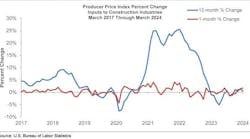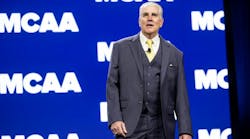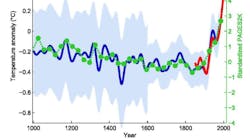First, a disclaimer: Clark’s Remarks is not meant to be, and has no intention of becoming, a court reporter.
That said, last October, we did report here on the U.S. Court of Appeals for the D.C. Circuit ruling that Public.Resource.org could continue to make certain codes, published/promulgated by ASHRAE, ASTM, and NFPA, available to the public online at no charge. Because ASHRAE plays such a prominent role in the HVAC industry, the outcome of the 10-year long legal battle seemed an appropriate topic for HPAC’s readership.
Now, there is another case that seems worthy of sharing with the sustainability community that HPAC Engineering serves. Also taking place in Washington – this time in the D.C. Superior Court – is the defamation lawsuit brought by Dr. Michael E. Mann, the Presidential Distinguished Professor in the Dept. of Earth and Environmental Science at the University of Pennsylvania. The defendants are Canadian writer and radio/TV host Mark Steyn and Rand Simberg, an analyst and adjunct scholar at the DC-based Competitive Enterprise Institute.
This is a long-running case, having been originally filed in 2012 as Mann PhD, Michael E. vs. National Review, Inc., et al. Two of the original defendants, National Review (which published Steyn’s posts) and Competitive Enterprise Institute (which published Simberg’s), had their motions for summary judgment granted by the court in 2021. So both were dismissed from the lawsuit.
Last week, however, Dr. Mann won big.
On Feb. 8, a six-person jury unanimously reached a verdict after a four-week trial and one full day of deliberation. According to The New York Times:
They found both Mr. Simberg and Mr. Steyn guilty of defaming Dr. Mann with multiple false statements and awarded the scientist $1 in compensatory damages from each writer. [But] the jury also found the writers had made their statements with “maliciousness, spite, ill will, vengeance or deliberate intent to harm,” and levied punitive damages of $1,000 against Mr. Simberg and $1 million against Mr. Steyn, in order to deter others from doing the same.
Dr. Mann is a highly respected climate scientist and author, named by Scientific American in 2002 as one of the world's 50 leading visionaries in science and technology. He is perhaps best known as the father of the “hockey stick graph," a simple plot representing temperature over time. Its name comes from the shape of the plot which resembles an upturned hockey stick. The “handle” corresponds to the relatively constant temperatures over the pre-industrial era, and the “blade” corresponds to the dramatic warming that coincided with the industrial revolution.
According to Dr. Mann, "The ‘Hockey Stick’ graph became a central icon in the climate wars. The graph took on a life of its own.” When the Intergovernmental Panel on Climate Change used the graph in its 2001 report, it made global warming much more understandable to the general public.
Since this case has finally been decided after a dozen years, I won't go into the specifics of what the defendants said about Prof. Mann and his research (although, personally, I found their comparison of Dr. Mann to a convicted child molester and former Penn State football coach, to be especially repugnant). Simply put, Dr. Mann had contended that Steyn and Simberg had damaged him by publishing false and misleading comments about his work. The jury ultimately agreed.
Of course, some scientists and educators believe that the matter goes deeper than that, and that the defendants – and others – are really attacking the whole concept of anthropogenic climate change as depicted by the hockey stick graph. So, had the defendants prevail in this case, it could have had a chilling effect on what scientists say about climate change going forward.
Granted, journalists have a great deal of leeway when writing about public figures, which may include prominent scientists. But in this contentious and vitriolic age, it is reassuring to be reminded that the First Amendment still has limits. Its protection of free speech must not and cannot encourage blatant misinformation campaigns that target anyone, much less climate scientists trying to aid our search for a healthier planet.
Hopefully, this month's verdict will send a strong message to climate change deniers who choose to personally attack the scientists, rather than factually challenge the science.
##########
A regular contributor to HPAC Engineering and a member of its editorial advisory board, the author is a principal at Sustainable Performance Solutions LLC, a south Florida-based engineering firm focusing on energy and sustainability. He can be reached at [email protected].









